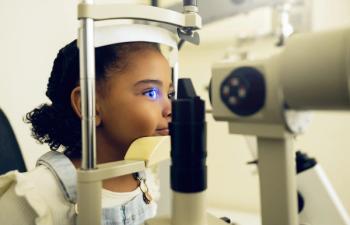
COVID-19 vaccination can contribute to corneal allograft rejection
Japanese researchers conducted a systematic review that identified clinical features and host factors associated with corneal allograft rejection after COVID-19 vaccination.
Clinical features and host factors associated with corneal allograft refection after patients received the COVID-19 vaccination were identified in a systematic review1 performed by Japanese researchers, led by Kenta Fujio, MD, from the Departments of Ophthalmology and Digital Medicine, Juntendo University Graduate School of Medicine, Tokyo.
As a result of COVID-19, millions of individuals worldwide were vaccinated for the virus, followed by booster vaccinations. Health professions became aware of the emergence of complications following the vaccines, that included hypercoagulability, Guillain–Barre syndrome, myocarditis,2 and allograft organ rejection.3
Considering these developments, Fujio and colleagues wanted to identify the characteristics and clinical ocular manifestations of acute corneal graft rejection after COVID-19 vaccination.
They conducted an online search of the PubMed and EMBASE databases and collected data on recipients’ characteristics, corneal transplantation types, interval between vaccination and allograft rejection, clinical manifestations, and graft rejection medication, they described.
Literature search results
The investigators identified 13 articles, published between April and December 2021, that included 21 patients (23 eyes) with acute corneal graft rejection after COVID-19 vaccination.
The median patient age at the onset of the graft rejection was 68 (range, 27 to 83) years. The types of transplantation procedures that had been performed included penetrating keratoplasty (12 eyes), Descemet membrane endothelial keratoplasty (6 eyes), Descemet stripping automated endothelial keratoplasty (4 eyes), and living-related conjunctival-limbal allograft (1 eye), they reported.
The graft rejections occurred between 1 day to 6 weeks after the COVID-19 vaccination. The primary clinical manifestations in the episodes of rejection were corneal edema in 20 eyes, followed by keratic precipitates and conjunctival or ciliary injection in 14 eyes each.
Patients were prescribed treatment that included frequently applied topical corticosteroids in 12 eyes, and a combination of topical and oral corticosteroids in 4 eyes. The clinical characteristics of corneal allograft rejection after COVID-19 vaccination were identified in the patients.
“This systematic review identified clinical features and host factors associated with corneal allograft rejection after COVID-19 vaccination,” the authors advised. “As the virus continues to spread, additional booster COVID-19 vaccine schedules are expected. Therefore, proper follow-up of corneal allograft recipients and interventions to prevent corneal allograft rejection after they received the COVID-19 vaccine may be crucial.”
References
1. Fujio K, Sung J, Nakatani S, et al. Characteristics and clinical ocular manifestations in patients with acute corneal graft rejection after receiving the COVID-19 vaccine: a systematic review . J Clin Med. 2022,11:4500; doi:103390/jcm11154500
2. Centers for Disease Control and Prevention selected adverse events reported after COVID-19 vaccination. Available online:https://wwwcdcgov/coronavirus/2019-ncov/vaccines/safety/adverse-eventshtml (accessed on 27 March 2022).
3. Ou MT, Boyarsky BJ, Motter JD, et al. Safety and reactogenicity of 2 doses of SARS-CoV-2 vaccination in solid organ transplant recipients. Transplantation. 2021;105:2170–2174.
Newsletter
Want more insights like this? Subscribe to Optometry Times and get clinical pearls and practice tips delivered straight to your inbox.





























